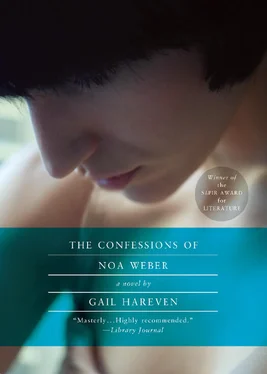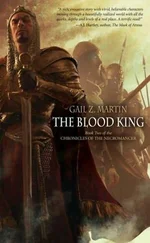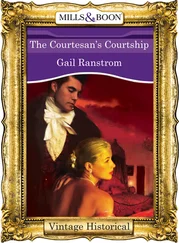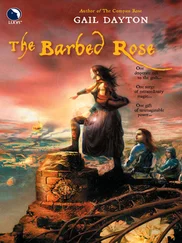In the morning I threw a neutral remark into the air anyway, to check out his reaction, and Alek raised his eyes from his book and gave me a long, faintly amused look. “I’ve known too many woman of this type,” he said in the end and went back to his book, pinching his cigarette as usual between his thumb and two fingers.
Ten or maybe twelve years later, in the home of friends in Tel Aviv, I came across Osnat again. She taught in the history department at the university, published articles in the newspapers, she still turned her chair around, and she still smoked the same short Chinese pipe. Since she failed to recognize me and remember me from then, I felt free to touch the erogenous zone and remind her of “that crowd from Nachlaot.” “Oh yes, them, sure … they were fucking male chauvinists, too, just like everyone else in those days.” Beyond this sweeping generalization it appeared that the group had not remained in her memory, and we actually became quite good friends.
Opinions I heard on those evenings seeped into me gradually, and even though I lacked the intellectual background to understand them, I started trying on ideas like a young girl trying on a dress: not in order to see if it fits her, but to see who it turns her into and who she looks like when she puts it on. “What’s the difference between the actions of Black September against us and our bombing in Jordan?” I threw at my mother’s back one evening during the weeks when I was still going home. “They hurt civilians and we hurt civilians. They took our athletes hostage in Munich, and we treat Jordanian civilians as hostages; so tell me why what Israel does is called war and defense, and what Black September does is called terrorism?”
• • •
“It’s a good thing your father isn’t here to hear you talk like that,” my mother said grimly, draining the water from her steamed vegetables into the sink. “If you, Noa, don’t know the answer to that question yourself, it would be better if you kept quiet and didn’t shame yourself by such talk. We know very well who’s influencing you, who’s putting that nonsense into your head.” My mother, unlike me, has never felt the need to try on opinions, and in this she resembles my daughter far more than me. My mother is a dietetic nurse, my daughter is about to become a rabbi, and they both relate with the same degree of seriousness to what goes into the mouth and what comes out of it.
Looking back, even though I agree in general with Osnat’s verdict regarding the group’s male chauvinism, it’s clear to me that the seeds of my feminist views were planted during that period. At the time I didn’t take any notice of the way they behaved towards women, it wasn’t too different from the way my father or any other man I knew behaved, they certainly didn’t count women among oppressed population groups, and neither did it ever occur to me to do so. And nevertheless questions like: “Law and order — that serve whom?” registered in my mind and left an impression, and years later, when I constructed the character of Nira Woolf, I gave her some of Osnat’s gestures, and some of her views regarding the law.
(“When Nira Woolf gives the sex slave her pistol, in order for her to use it, she is actually killing them both with one bullet: the slave trafficker and the oppressed woman. So that after the shot we are left with the body of a man, a dead female slave, and a living woman. She who was previously a slave and who is now a liberated woman.” From my last interview about What Did Mrs. Neuman Know ?)
Alek, as I said, didn’t talk much, but before I finish with the folklore of those days in Nachlaot, I’ll just mention one outburst of his. The discussion was not particularly lively — about the indifference of the Israeli student, the Sorbonne commune, the occupation, police brutality and the right to violence — and they were rehashing the subject of “the suppression of thought” again when Alek suddenly began to talk about the Prague Spring. I won’t try to recapitulate everything he said, because more than I remember the content, I remember the tone. He sat slightly bowed in his chair and spoke quietly, without looking at any of us, speaking as if he was telling a very personal story, and one sentence kept coming back like a lament: “It was beautiful, the Prague Spring, it was beautiful, and I like a fool actually began to believe that the world was going to let it happen.”
When the story was drawing close to its end, Alek raised his voice, glaring at us suddenly with a strange hostility: “Half a million Russian tanks crushed Czechoslovakia. They trampled the students, they trampled artists, they destroyed a hope that you’ll never understand. People like you, who talk about repression, have no idea of what kind of freedom people were fighting for there.” He stood up with a distorted face, close to tears or violence, and what happened afterwards was very much like flight.
In the space of ten minutes everyone had left the house, except for me and Hamida-Yoash, who took him to the kitchen and sat there with him until three in the morning emptying a bottle of vodka. The drink silenced Yoash and made Alek talkative and less sparing of gestures. “… It’s the talking … that’s the problem, I can’t stand the talking, not just Menachem’s, the two Menachems, with them it’s relatively easy, because they come right out and call themselves communists. I mean the others, all the others who haven’t got faintest idea of what they’re talking about,” he lashed out at both of us, or maybe only at Yoash. “Even you, who’re a friend and genuine human being, even you’re like a communist. You all know best, you all know what’s good for everyone, and you’re all ready to drag us by the hair into a bright future. Forgive me, I apologize, I’m not just drunk, I’m pathetic, but I can’t stand it physically, physically.”
And nevertheless he treated Yoash differently from the rest. Alek needed money, I don’t know if Yoash really needed his help in his work, but from time to time, at an evening’s notice, he would ask him to come and paint a house with him. House-painting days were always good days. The pickup honking its horn outside early in the morning, and at dusk the two of them returning cheerful and spattered with whitewash, unloading vast quantities of meat and vegetables, and taking over the kitchen to cook and drink. I wasn’t allowed to join in the cooking, it was a ritual with no room in it for a woman, and they sent me to “go for a little run outside.” But when the meal was ready, at the table, my presence was very desirable. I loved sitting there between the two of them, happy and hungry from the running, bathed and shampooed after it, like an honorary member of the male fraternity. They filled my plate, poured me water, sliced me bread. “Hamida is my true friend,” he would sometimes say, and examine me to see if I understood the meaning of the word. “I can see,” I would answer seriously. More than once it happened that while we were sitting at the table somebody knocked at the door, and Alek would put his finger to his lips and signal the two of us to be quiet, ignoring the record player that betrayed our presence in the house. But there were days when he didn’t even open the door for Yoash.
MARRYING NOA
I don’t remember who began the teasing, but it was Danny Hyman who turned it into a running joke. Hyman was a law student, a man with small limbs, stiff movements and the pronunciation of a radio announcer. I detested him instinctively, and he for his part never threw a word in my direction. From time to time when they talked about freedom, and they talked a lot about freedom, Hyman would tap an American cigarette on its packet and point out that, “The trouble is that all we do is talk and talk, and nobody’s prepared to do anything.” Then he would stick the cigarette in his small mouth and add: “Alek, for example, thinks that we should liberate girls from the army. So why doesn’t he marry Noa and free her from serving in the army?” After he had repeated this a few times, “Why doesn’t he marry Noa?” turned into “Why don’t we marry Noa?” or “Yeah, sure, and now let’s go and marry Noa,” a line that could be fallen back on by anyone wanting to put an end to any tedious debate, with the highly amusing conclusion that we were all impotent anyway.
Читать дальше












